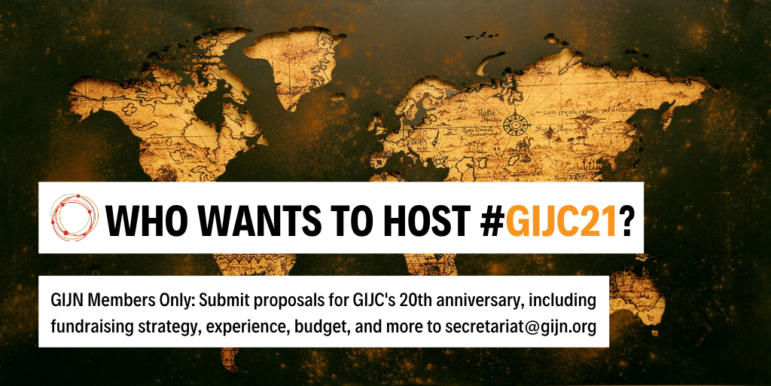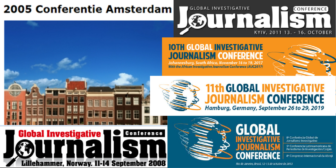

After Hamburg: Call for Proposals for GIJC 2021
 The Global Investigative Journalism Conference is the world’s premier international gathering of investigative and data journalists. Held every two years, the conferences have trained more than 7,000 journalists, sparked hundreds of investigations and collaborative projects, and played a key role in the global spread of investigative and data journalism since our first gathering in 2001. With a focus on training and networking, the GIJC attracts over 1,000 reporters and editors from 100 countries each time.
The Global Investigative Journalism Conference is the world’s premier international gathering of investigative and data journalists. Held every two years, the conferences have trained more than 7,000 journalists, sparked hundreds of investigations and collaborative projects, and played a key role in the global spread of investigative and data journalism since our first gathering in 2001. With a focus on training and networking, the GIJC attracts over 1,000 reporters and editors from 100 countries each time.
Producing the event requires intense planning, fundraising, and operational skills by its hosts, but the effort is worth it because of the high standards of GIJC speakers and sessions, its global impact, and the way it raises the profile and stature of the organizers. The next global conference will be an especially significant event as the GIJC will celebrate its 20th anniversary.
The Global Investigative Journalism Network, which oversees the conferences, is now accepting proposals to be the local host for the 12th Global Investigative Journalism Conference, to be held in 2021.
Potential hosts must be a GIJN member.
If your organization would like to host the next GIJC after this year’s conference in Hamburg, Germany, now is the time to assemble and submit a proposal.
Deadline to submit a proposal is June 30, 2019.
The decision on the 2021 conference will be made by GIJN’s 177 member organizations. (Each organization gets a single vote.) Voting will held electronically following presentations at the GIJN members meeting at GIJC19 in Hamburg this September.
Proposals will be public and posted on the GIJN.org website.
The hosting organization will team up with the GIJN Secretariat, GIJN member groups and partners to finance and organize the conference. We recommend detailed proposals of at least eight pages (in PDF) that discuss:
- Fundraising strategy, including the host organization’s ability to find funding and sponsorships. (The cost of a GIJC ranges from US$500,000 to US$900,000.)
- Ability of the host organization to obtain local support.
- Host organization’s experience at organizing conferences.
- Host organization’s experience in management.
- Advantages of holding the GIJC in the suggested city, including environment, transportation, logistics, security, visas, and cost.
- Estimated budget for the conference.
- A description of the potential venue (hotel, conference center, university) for the conference.
- Suggested focus and structure of conference panels, workshops, and other events.
- Ability to work with the GIJN Secretariat on planning, programming, fundraising, and logistics.
Proposal Submission Guidelines
- Fill in the form embedded below
- Download this spreadsheet and prepare a detailed budget
- Prepare all the proposal information (submitted in the embedded form) with relevant images of the potential conference venue in PDF format
- Email both budget spreadsheet and PDF to secretariat@gijn.org
Please let us know if you have any questions or need any clarifications on requirements by contacting us. Inquiries and proposals should be sent to secretariat@gijn.org.
Loading…








